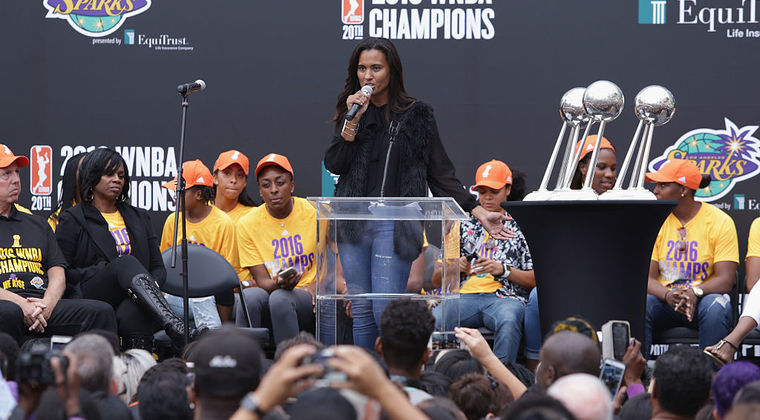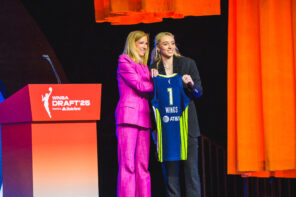(Video Credit: UCLA)
A mentor can sometimes be the difference between success or failure—especially at times for a young person who is in their 20s and just beginning to find her or his way through life.
Mentorship was something that was recently talked about by Christine Simmons, the Chief Operating Officer of the Los Angeles Sparks. Also on the panel was gang expert Jorja Leap and UCLA evolutionary biologist Paul Barber.
In their opening thoughts, Leap mentioned the importance of listening to those that have to be mentored and, in a way, becoming that person. Barber talked about the difference between needing help and receiving tough love. Simmons criticized some mentors for being overtly talkative.
I think a lot of mentors come into it and they’re talking way too much—and not asking enough questions.
–Christine Simmons
Simmons also referred to some of those who mentored her as “tormentors” because of how hard they pushed her to be better than what she saw she was, but she said she needed that in her life. Barber said his mentors were more like “guardian angels.”
Leap, speaking from her experience, mentioned how gang members themselves can have mentors, but not outside of them.
We literally impacted nearly 30,000 youth and community groups last year alone—from financial literacy, to health and wellness to girls and women’s empowerment.
–Christine Simmons
She also mentioned that the Sparks are also working on a community outreach plan to get girls more interested in STEM programs.
After Barber mentioned a program that transitions high school students to college, Simmons talked about student-ran organizations that represent underserved communities that aim to broaden their reach, as well as peer-to-peer organizations.
Leap said she would have liked to be mentored by Dr. Martin Luther King, Jr. while Barber mentioned he would have liked to be mentored by Barack Obama.
Simmons’ pick—Ava DuVernay.
Barber praised all three for starting small and arriving at the points in their lives they got to. According to Simmons, mentoring begins with impacting someone other than oneself.
Leap referenced a Jesuit priest who brought people into his company and determined if they were ready or if they were not and simply needed more time. She said he saw the gang members he brought in had transferrable skills that could be useful for the company.
Barber said someone has to simply show up in order for them to get him as a mentor.
Simmons referenced a quote that encapsulated how there are those that want to be mentored as well as those that really did not.
If we show up as mentors, if they show up as mentees, then I think we can change the world.
–Christine Simmons





